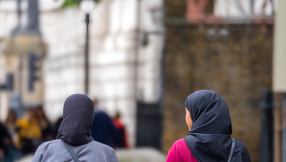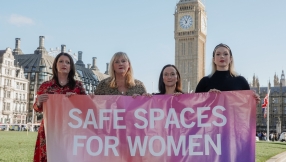Close to four billion people are living in countries where the most intense violations of religious freedom are occurring, a new report warns.
The Religious Freedom in the World Report 2021, compiled by Aid to the Church in Need (ACN), lists 26 countries in the most severe category, comprising just over half (51%) of the world's population.
Twelve of these countries are in Africa, among them Nigeria, where long-running conflicts over natural resources, and ethnic divisions have been made worse by climate change, "growing" poverty and attacks by armed criminal gangs.
"Notwithstanding these, for the most part, communities and different faith groups have lived together in relative peace. Within the last decade, however, violence has erupted across the region with unimaginable ferocity," ACN warns.
Other countries on the "red" list include China and Myanmar, where there has been international outcry over possible genocides of the Rohingya and Uyghurs.
Globally, religious freedom is being violated in almost a third (31.6%) of the world's countries, with a "significant" increase in severity over the last year.
Of particular concern are large jihadist networks like the so-called Islamic State and al-Qaeda spreading across the Equator that "aspire to be transcontinental 'caliphates'".
"A crescent of jihadist violence stretches from Mali to Mozambique in Sub-Saharan Africa, to the Comoros in the Indian Ocean, and to the Philippines in the South China Sea," ACN said.
At the same time, a "cyber-caliphate" is expanding globally, with extremist groups attracting new recruits from the West online.
"Islamist terrorists employ sophisticated digital technologies to recruit, radicalise and attack. Counter-terrorism units, although not able to neutralise the online terrorist communications, were nonetheless able to foil attacks in several Western countries," the report reads.
They are not the only ones utilizing digital technologies as countries like China step up their use of AI-enhanced surveillance to monitor the movements of Christians.
In the past year, a new form of persecution has emerged with religious minorities being blamed for the pandemic in China, Niger, Turkey, Egypt and Pakistan. Christians have also found themselves being excluded from food distributions and medical aid.
There has been a "groundswell" of religious nationalism, the report continues, with authoritarian governments becoming more oppressive and reducing religious minorities to "the status of de facto second-class citizens".
The report further warns of sexual violence against women and girls from religious minorities across a growing number of countries.
"The increasing number of these violations, which are often committed with impunity, fuel concerns that they form part of a fundamentalist strategy to hasten the disappearance of certain religious groups in the long run," ACN said.
Another emerging form of persecution is what ACN terms "polite persecution", in which, quoting Pope Francis, the rise of new "rights" or cultural norms consign religions "to the quiet obscurity of the individual's conscience or relegates them to the enclosed precincts of churches, synagogues or mosques."
"These new cultural norms, enshrined in law, result in an individual's rights to freedom of conscience and religion coming into a profound conflict with the legal obligation to comply with these laws," the report says.
Elsewhere, the report raises concerns that the disappearance of religious education classes in Western schools will undermine efforts to combat radicalism.
"The West has jettisoned tools that reduce radicalisation," it says.
"Even though governments recognise that teaching world religions in schools reduces radicalisation, and increases interreligious understanding among young people, a growing number of countries have discontinued religious education classes."
Commenting on the findings, ACN International President Dr Thomas Heine-Geldern stated: "Regrettably, despite the – albeit important – UN initiatives and the staffing of religious freedom ambassadorships, to date the international community's response to violence based on religion and religious persecution in general can be categorised as too little, too late."













